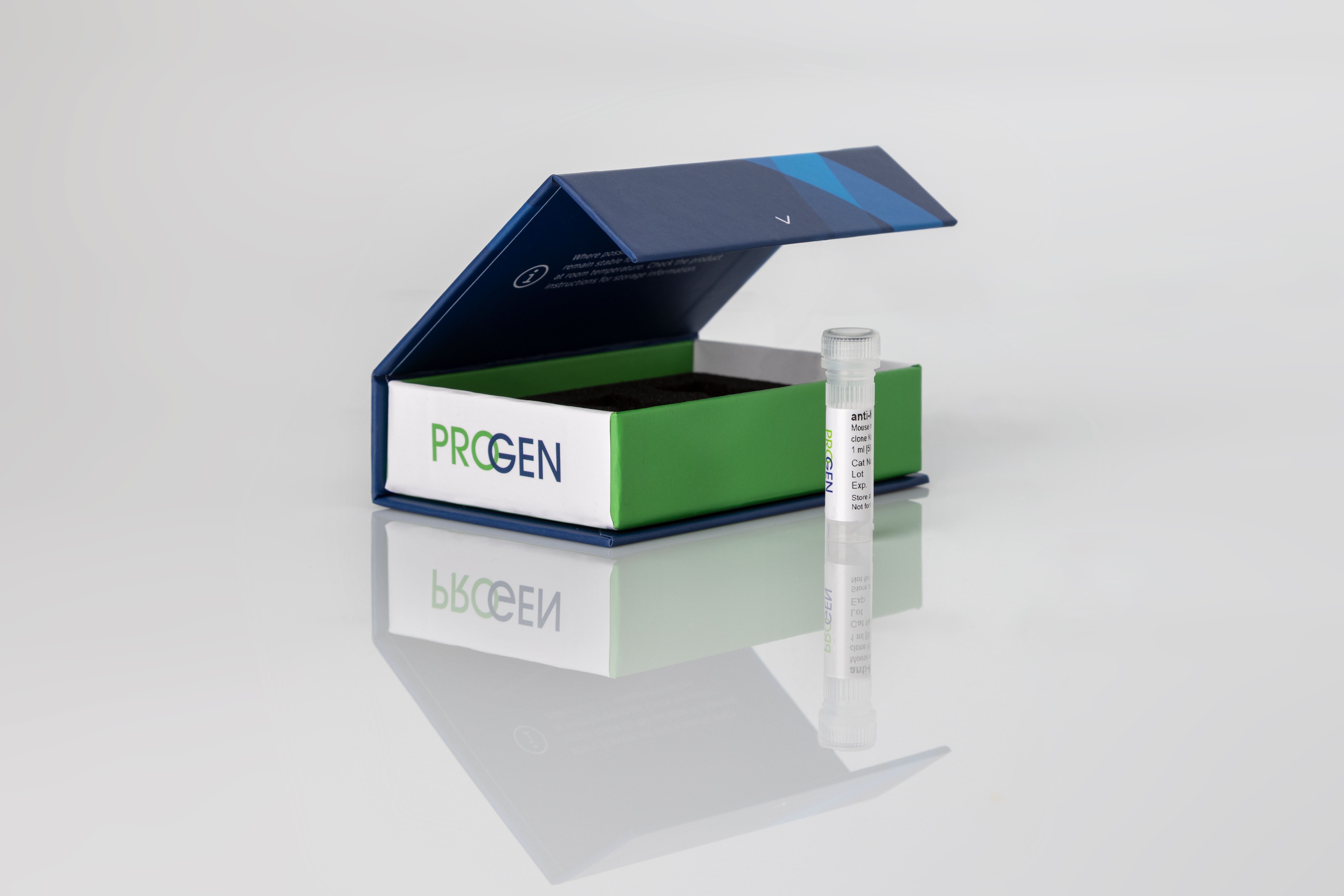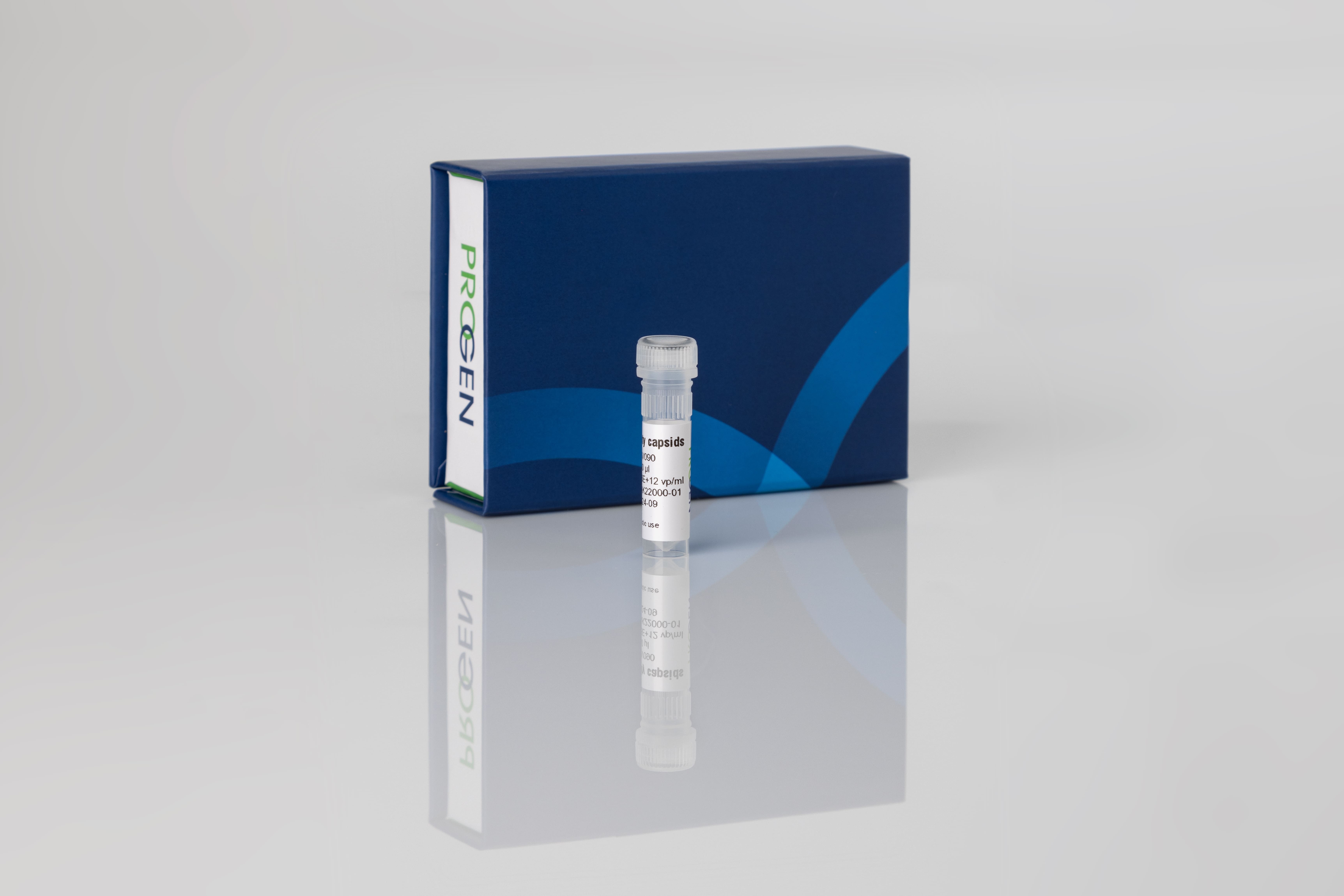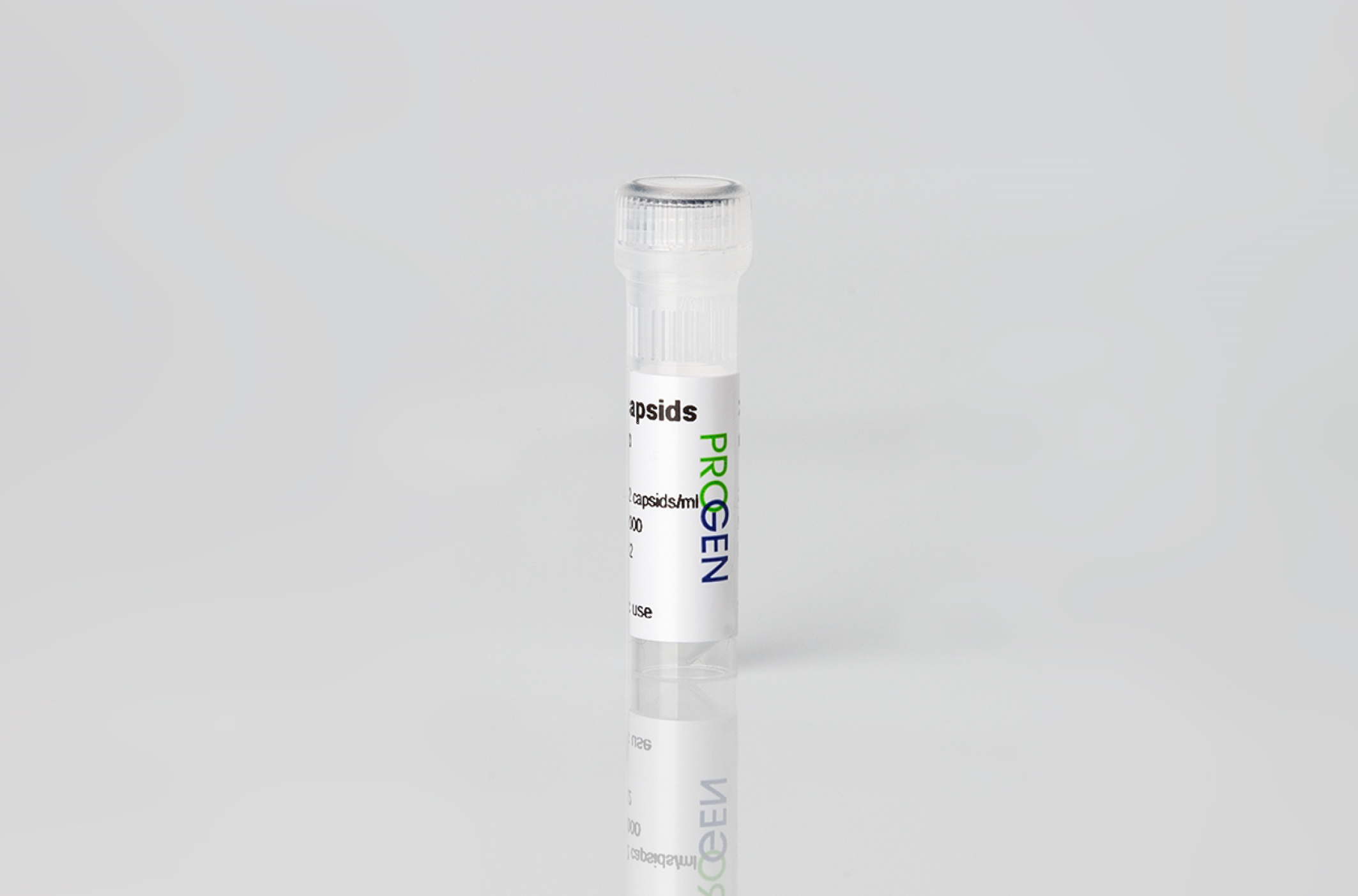
Detect Antibodies against AAV
for Patient Safety
Patients can develop anti-AAV antibodies due to naturally occuring AAV infections. These antibodies can interfere with AAV vector gene transfer and the results can be unsafe or simply ineffective. To ensure patients are not put at unnecessary risk it is essential to test patient sera when selecting patients for AAV clinical trials.
Human chimeric AAV antibodies are a reliable assay control to be used when detecting AAV antibodies in human sera and are based on PROGEN’s exclusive portfolio of neutralizing anti-AAV mouse monoclonal antibodies. They have the same variable region, but the human chimeric AAV antibodies contain a human Fc region. This allows them to be recognized by anti-human secondary antibodies and ensure comparability with human serum antibodies.
Available for AAV1, AAV2, AAV3, AAV5, AAV6, AAV7, AAV8, AAV9, AAVrh10 and AAVrh74.
Human Chimeric AAV Antibody Benefits
Ensure safety: testing patient sera before clinical trials ensures you know whether AAV antibodies are present in patient sera or not, resulting in a safe and efficient gene transfer.
Saves you time: avoid the time-intensive procedure of characterizing AAV-positive reference serum and get hold of an off-the shelf solution within days.
Adhere to FDA guidelines: pre-testing patient sera is not a nice-to-have, but imperative in adhering to FDA guidelines.
Achieve comparability: with their strong similarity to the human sample, these antibodies provide lot-to-lot consistency and comparability.
Sample sizes available: smaller 10 µg sizes allow you to trial and test to ensure the right fit for your next project.
| Human Chimeric Antibody | Clone | AAV1 | AAV2 | AAV3 | AAV4 | AAV5 | AAV6 | AAV7 | AAV8 | AAV9 | AAVrh10 | AAVrh74 | AAVDJ |
| Anti-AAV1 | ADK1a-h1 | X | X | n.a.* | |||||||||
| Anti-AAV2 | A20-h1 | X | X | n.a.* | |||||||||
| Anti-AAV5 | ADK5b-h1 | X | n.a.* | ||||||||||
| Anti-AAV5 | ADK5b-h2 | X | n.a.* | ||||||||||
| Anti-AAV8 | ADK8-h1 | X | X | X | X | X | |||||||
| Anti-AAV9 | ADK9-h1 | n.a.* | X |
x - Reactivity
na - Not analysed
Empty field - no reactivity
What customers are saying
The human chimeric anti-AAV9 antibody has exceeded my expectations and it has picked up empty AAV9 capsid couples on Luminex beads. The development data shows the assay is working well and I would highly recommend using these antibodies in ELISAs or other bridging assays e.g. ADAs.
Scientific Specialist, Labcorp Drug Development

POSTER Human Chimeric AAV Antibodies – Advanced Standard for Serological Assays
Download our poster to explore characterization data of human chimeric AAV antibodies. Here we take a closer look at cross-reactivity, sensitivity and neutralizing activities in comparison with mouse monoclonal antibodies.
Human Chimeric AAV Antibodies FAQs
Yes, they show the same cross-reactivity as their mouse monoclonal versions. The table below shows where cross-reactivity takes place.
| Human Chimeric Antibody | Clone | AAV1 | AAV2 | AAV3 | AAV4 | AAV5 | AAV6 | AAV7 | AAV8 | AAV9 | AAVrh10 | AAVrh74 | AAVDJ |
| Anti-AAV1 | ADK1a-h1 | X | X | n.a.* | |||||||||
| Anti-AAV2 | A20-h1 | X | X | n.a.* | |||||||||
| Anti-AAV5 | ADK5b-h1 | X | n.a.* | ||||||||||
| Anti-AAV5 | ADK5b-h2 | X | n.a.* | ||||||||||
| Anti-AAV8 | ADK8-h1 | X | X | X | X | X | |||||||
| Anti-AAV9 | ADK9-h1 | n.a.* | X |
*n.a.: not analyzed
The binding affinity of the human chimeric antibodies to different AAV serotypes was tested and compared to the corresponding mouse monoclonal antibodies using biolayer interferometry (BLI) analysis. The table below shows the results.
| Serotype | Antibody Clone | Binding Affinity (KD Value) |
| AAV1 | ADK1a | <1.0E-12 M |
| ADK1a-h1 | 8.8E-12 M | |
| AAV2 | A20 | 2.6E-11 M |
| A20-h1 | 1.2E-10 M | |
| A20R | <1.0E-12 M | |
| AAV3 | A20 | <1.0E-12 M |
| A20-h1 | 9.3E-11 M | |
| A20R | <1.0E-12 M | |
| AAV5 | ADK5a | 4.9E-11 M |
| ADK5b | 6.0E-11 M | |
| ADK5b-h1 | 8.1E-11 M | |
| ADK5b-h2 | 3.6E-11 M | |
| AAV6 | ADK1 | <1.0E-12 M |
| ADK1a-h1 | 5.9E-11 M | |
| AAV8 | ADK8 | <1.0E-12 M |
| ADK8-h1 | <1.0E-12 M | |
| AAV9 | ADK9-1R | <1.0E-12 M |
| ADK9-h1 | 7.0E-11 M | |
| AAVrh10 | ADK8 | <1.0E-12 M |
| ADK8-h1 | <1.0E-12 M | |
| AAVrh74 | ADK8 | <1.0E-12 M |
| ADK8-h1 | <1.0E-12 M |
The lower the KD value the higher the binding affinity. The detection limit is 1.0E-12 M.
Anti-AAV5, ADK5b-h1 is an IgG1 antibody whereas ADK5b-h2 is an IgG2 antibody.
The human chimeric AAV antibodies have the same variable region as our mouse monoclonal antibodies but instead a human constant region.


AAV Standard Material
Suitable for precise and consistent characterization for your AAV product.

AAV Antibodies
Exclusive AAV mouse monoclonal particle, capsid and replicase antibodies.
